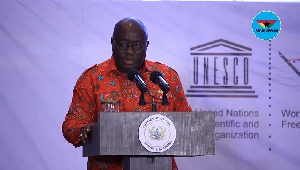The labour front has been relatively quiet ever since President Nana Akufo-Addo assumed the Presidency, and that has augured well for industrial peace. However, last week leadership of the Civil and Local Government Staff Association of Ghana (CLOSSAG) held a press conference and raised some disconcerting issues.
Their beef is the manner in which political appointees, upon assuming office, have a penchant for recruiting their own assistants to perform duties that are specifically the preserve of civil servants. CLOSSAG contends that engaging special assistants to the neglect of civil service machinery is undermining the civil service – and they have a point, since it has become fashionable for political appointees to express preference for their own assistants which renders civil servants redundant.
The civil service is supposed to be apolitical, and serve the government of the day and nation at large. However, some political appointees complain of the lackadaisical attitude of civil servants – arguing that the lack of speed that civil servants display stalls tackling the myriad problems confronting the nation, and as a result prefer to rely on ‘trusted’ hands or assistants.
If that argument is allowed to persist, then the role of the civil service will be undermined and subject to political swaying – which should not ordinarily be the case. CLOSSAG believes its members and the civil service has a whole has competencies of varying degrees, and for politicians to sideline them for their favourites smacks of undue political interference.
It is our view that in principle CLOSSAG has a point, since the civil service is politically neutral and pigeon-holing the service into perceived political camps could be detrimental to the nation in the long-term.
We understand that political appointees have some role to play in giving the party faithful public appointments, but this should not be done at the civil service’s expense. The civil service retains institutional memory that is vital to the success of any in-coming administration, and it will serve their purpose to deal cautiously with the Service in a manner that is professional and devoid of any acrimony.
The warning issued by CLOSSAG must not be dismissed or taken lightly, for they wield enormous influence that must be courted or assuaged. Power is transient and must not be seen as an end in itself.
Business News of Wednesday, 9 May 2018
Source: thebftonline.com
CLOSSAG deserve a hearing
Entertainment












